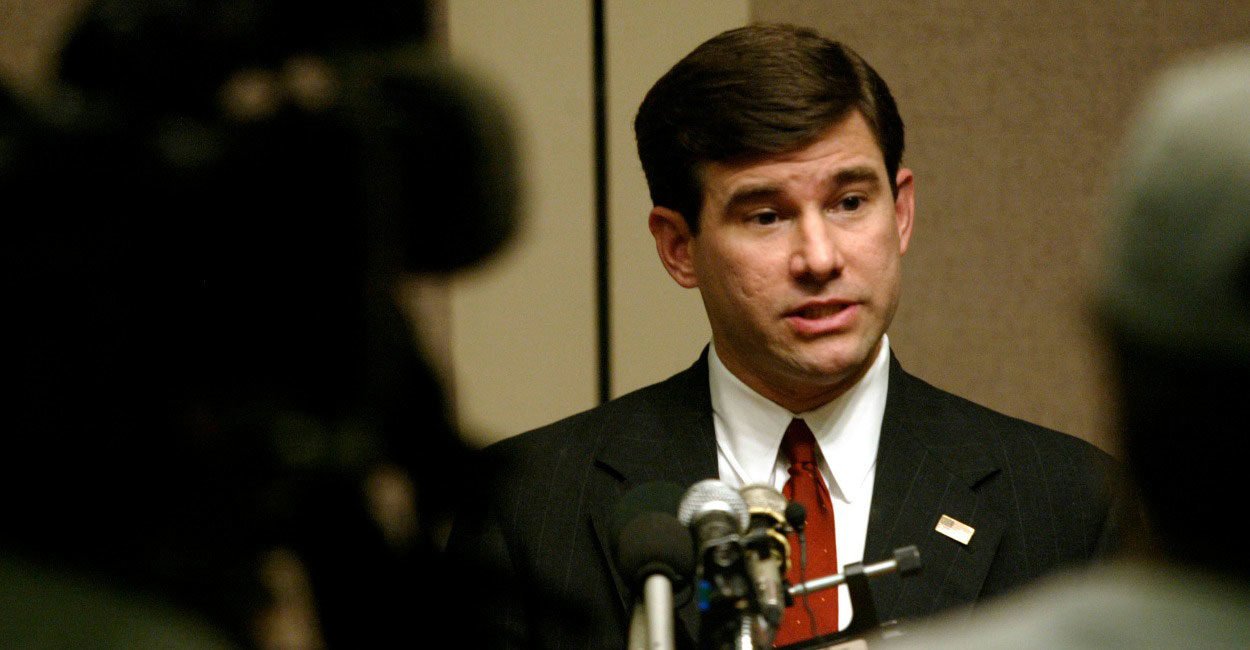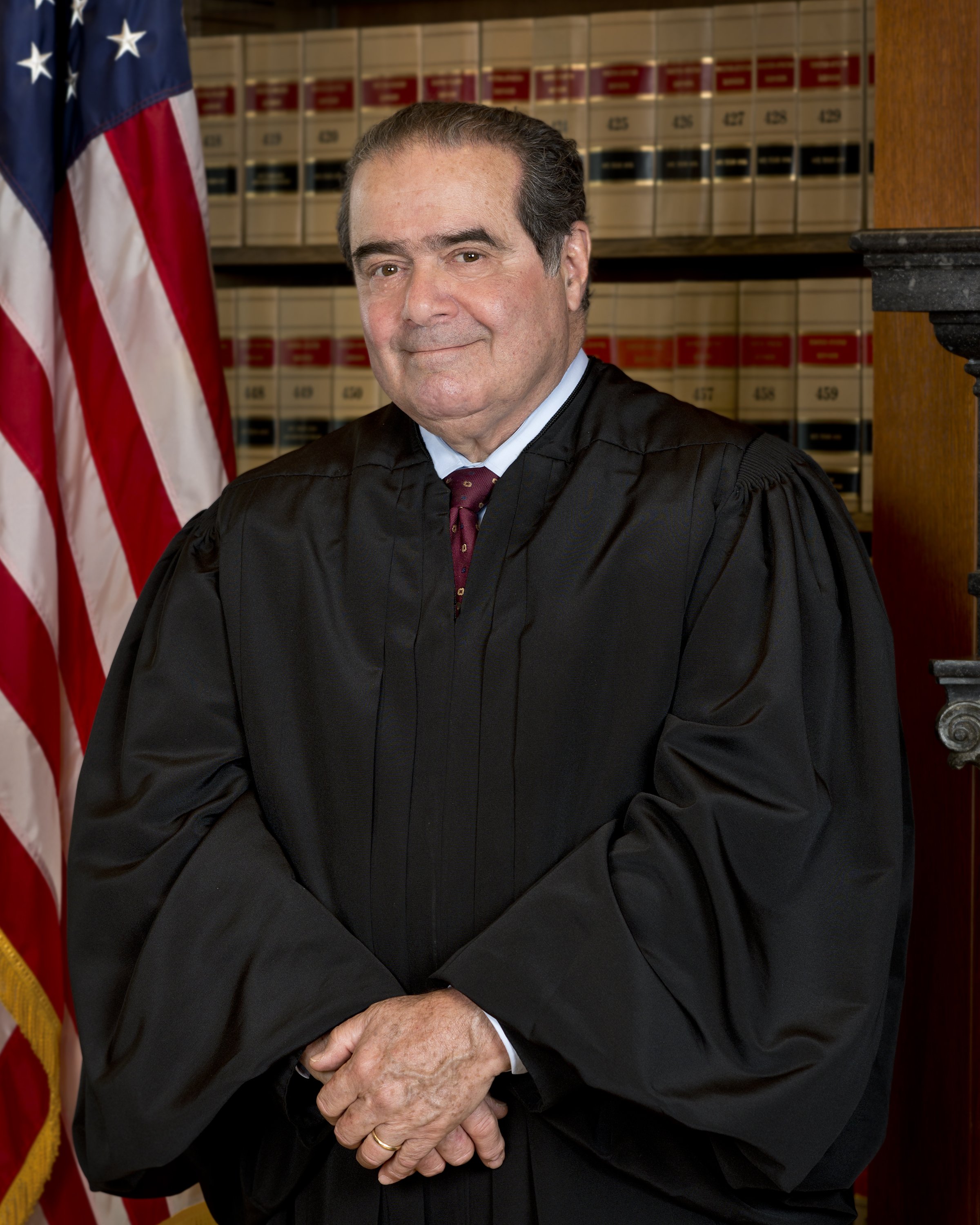Alabama v. Shelton
Case Overview
CITATION
535 U.S. 654 (2002)
ARGUED ON
February 19, 2002
DECIDED ON
May 20, 2002
DECIDED BY
Legal Issue
Is the appointment of counsel required for the imposition of a conditional or suspended sentence of incarceration?
Holding
Yes, a suspended sentence that may end up in the actual deprivation of a person’s liberty may only be imposed if the defendant was accorded the right to counsel in the prosecution for the crime charged.
Bill Pryor, the former Alabama Attorney General who took the case before the Supreme Court. He has served on the 11th Circuit Court of Appeals since 2004. | Credit: Tami Chappell/Reuters/Newscom
Background
LeReed Shelton was charged with third-degree assault, a misdemeanor in Alabama that carried a potential sentence of up to one year in prison and a $2,000 fine. Shelton was convicted in an Alabama state court and sentenced to a 30-day jail term. Shelton’s sentence was suspended, however, and he was placed on two years’ probation instead. At trial, Shelton represented himself and although the court warned him about the problems with self-representation, they never offered him the opportunity to obtain state-appointed counsel.
After his conviction, Shelton appealed the decision, challenging the imposition of a suspended sentence with probation terms, arguing that it effectively constituted a sentence of imprisonment for which counsel is constitutionally required under the Sixth Amendment, as applied to the states through the Fourteenth Amendment. The Alabama Court of Criminal Appeals affirmed his conviction because Shelton remained on probation and thus had not been deprived of his liberty by incarceration.
The state of Alabama appealed the decision to the Alabama Supreme Court, which concluded that because a defendant may not be imprisoned absent provision of counsel, Shelton’s suspended sentence could never be activated and was therefore invalid. The U.S. Supreme Court subsequently granted certiorari.
Summary
5 - 4 decision for Shelton
Alabama
Shelton
Stevens
Breyer
Souter
O’Connor
Ginsburg
Scalia
Kennedy
Rehnquist
Thomas
Opinion of the Court
Writing for the Court, Justice Ruth Bader Ginsburg held that a suspended sentence that may lead to imprisonment cannot be imposed unless the defendant was provided with counsel during the original prosecution. Ginsburg relied on from the Court’s past rulings in Argersinger v. Hamlin (1972) and Scott v. Illinois (1979) to emphasize the principle that “no person may be imprisoned for any offense... unless he was represented by counsel at his trial.” She clarified that the Sixth Amendment’s protection extends to cases where a suspended sentence might result in the actual deprivation of liberty, thus requiring the ‘guiding hand’ of counsel.
Ginsburg rejected the argument that counsel should be appointed only at the probation revocation stage, noting that such a regime would unduly limit the Sixth Amendment’s domain. She stated, “[t]he uncounseled conviction at that point results in imprisonment; it ends up in the actual deprivation of a person’s liberty. This is precisely what the Sixth Amendment, as interpreted in Argersinger and Scott, does not allow.” Ginsburg further explained that the probation revocation hearing in Alabama was an informal proceeding that did not provide the necessary safeguards to compensate for the absence of counsel during the initial trial. She argued that “a hearing so timed and structured cannot compensate for the absence of trial counsel and thereby bring Shelton’s sentence within constitutional bounds.”
Addressing the practical implications of the Court’s decision, Ginsburg noted that most jurisdictions already provide more generous protections than the Federal Constitution requires, so the imposition of probation without appointed counsel should not substantially burden the states. She also highlighted that pretrial probation could serve as an alternative, allowing states to supervise rehabilitation without the immediate need for appointed counsel. Ultimately, Ginsburg concluded, “[s]atisfied that Shelton is entitled to appointed counsel at the critical stage when his guilt or innocence of the charged crime is decided and his vulnerability to imprisonment is determined, we affirm the judgment of the Supreme Court of Alabama.”
Dissenting Opinion by Justice Scalia
In his dissenting opinion, Justice Antonin Scalia argued against the majority’s decision to extend the Sixth Amendment right to counsel to cases involving suspended sentences that could lead to imprisonment, believing instead that the Court’s ruling contradicted longstanding precedent that actual imprisonment was the threshold for appointing counsel.
Scalia emphasized that both Argersinger v. Hamlin (1972) and Scott v. Illinois (1979) established a clear line: the right to counsel is triggered by actual imprisonment, not by the potential for imprisonment. He stated, “[t]oday’s decision ignores this long and consistent jurisprudence, extending the misdemeanor right to counsel to cases bearing the mere threat of imprisonment.” Scalia argued that the suspended sentence and probation imposed on Shelton did not result in immediate deprivation of liberty and therefore did not require the appointment of counsel under the Sixth Amendment.
Scalia criticized the majority for speculating about future events such as potential probation violations and subsequent imprisonment, stating that “[t]he Court has miraculously divined how the Alabama justices would resolve a constitutional question” and highlighting his belief that the Court should not issue advisory opinions based on hypothetical scenarios. He also argued that severing the analysis between the imposition of a suspended sentence and the procedures that precede its activation made little sense, instead arguing that the Court should only address whether the imposition of a suspended sentence without counsel was constitutional, not the procedures that might follow if the sentence were later activated.
Scalia expressed concern that the majority’s decision would limit the states’ ability to impose probation and create unnecessary burdens, especially for poorer states. He suggested that states could provide adequate procedural safeguards, such as retrials with counsel, if the suspended sentence were activated. However, he saw no basis for the Court to dictate such measures, stating, “[b]y what right does the Court deprive the State of that option?” Scalia ultimately concluded that “[t]oday's imposition upon the States finds justification neither in the text of the Constitution, nor in the settled practices of our people, nor in the prior jurisprudence of this Court. I respectfully dissent.”









